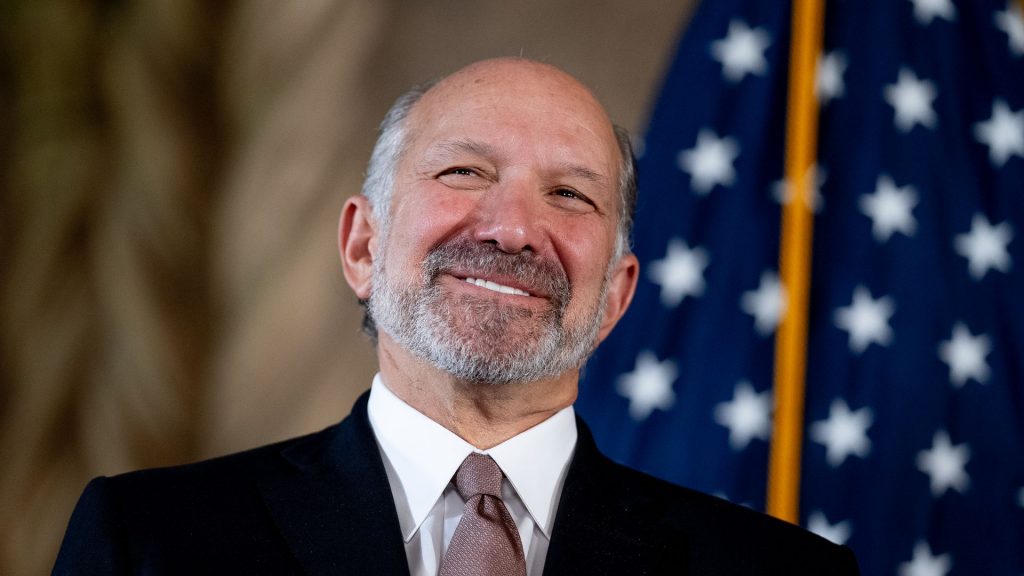Trump official says tariff exemptions will only last a ‘month or two’
Ella Greene April 13, 2025 0
- President Donald Trump announced a temporary exemption for smartphones, computers, and other high-end electronics from the 145% tariffs on China, but Commerce Secretary Howard Lutnick stated these exemptions are only temporary as the administration plans to introduce special focus tariffs on semiconductors.
- The administration is using tariffs to push companies to invest in American manufacturing, aiming to make foreign products more expensive and encourage domestic production.
- Lutnick expressed confidence that ongoing tariff negotiations between the U.S. and China would be resolved positively, despite economists’ concerns about potential price increases.
Full Story
Big Tech might not be avoiding “Armageddon” after the Trump administration said the tariff exemption on electronics is only temporary. Commerce Secretary Howard Lutnick made the comment on ABC’s “This Week” on Sunday morning, April 13.
On Friday, April 11, a U.S. Customs and Border Protection memo said the government will exempt smartphones, computers and other high-end electronics from the 145% tariffs imposed on China earlier this month. The tech sector applauded the move after dueling tariff announcements in recent weeks caused stock market whiplash.
What did Lutnick say?
However, the applause appears to be short-lived. On Sunday, Lutnick said these exemptions are only temporary as the Trump administration discusses “special focus” tariffs on semiconductors.
“All those products are going to come under semiconductors, and they’re going to have a special focus type of tariff to make sure that those products get reshored. We need to have semiconductors, we need to have chips and we need to have flat panels — we need to have these things made in America,” Lutnick said.
Lutnick said the government would announce these new tariffs in “a month or two.” Trump has paused his original tariff plan for the majority of the world for at least 90 days.
Why does the administration continue to use tariffs?
The administration has introduced tariffs to push companies to invest in American manufacturing. The theory is that if products from other countries are so high, more companies would start building factories in the U.S. to make products domestically without the high tariffs.
Lutnick said this new targeted tariff would focus on the semiconductor and pharmaceutical industry to encourage companies to move their business to the U.S. He said America can’t rely on foreign countries for fundamental items.
“We can’t be beholden and rely upon foreign countries for fundamental things that we need,” he said. “So this is not like a permanent sort of exemption. He’s just clarifying that these are not available to be negotiated away by countries. These are things that are national security that we need to be made in America.”
According to a recent review of economists by Stanford University, many believe Trump’s tariff plan won’t work as intended.
The study, posted in January before many of the tariffs were put into place, said sweeping tariffs could hurt Americans and wouldn’t drive job growth as intended. Researchers also noted a sweeping tariff plan would cost consumers nearly $3,000 a year.
How are tariff negotiations going?
During the ABC interview, Lutnick spoke on the ongoing tariff negotiations between the U.S. and China. He said he’s confident that both presidents will work together and America would come out on top.
“We all expect that the president of the United States and President Xi of China will work this out,” Lutnick said. “I am completely confident, as is [Trump], that this will be worked out in a positive, thoughtful and effective way for the United States of America.”
Many economists said prices on several items would likely increase due to the tariffs. However, Lutnick claimed that may not be the case. He said some companies, like Panasonic, have factories in the U.S., he said those factories would build products at reasonable prices.
“You’re going to see that production, that kind of high-tech factor, is going to produce things here at very reasonable prices. So I think this is going to work out,” Lutnick said.
Currently, China has a 125% tariff on imports of U.S. goods, while the U.S. has a 145% tariff on Chinese imports, besides the electronics exemptions.
Related Stories
Ella Rae Greene, Editor In Chief
Ella Greene
Ella and the staff at Clear Media Project (CMP) curate these articles.
Unless otherwise noted CMP does not write these articles.
The views, thoughts, and opinions expressed in the articles published on this blog belong solely to the original authors and do not necessarily reflect the views of the blog owner. The blog owner does not claim ownership of the content shared by contributors and is not responsible for any inaccuracies, errors, or omissions.
All rights and credits goes to its rightful owners. No Copyright Infringement is intended. If you believe any content infringes on your rights, please contact us for review and potential removal.





